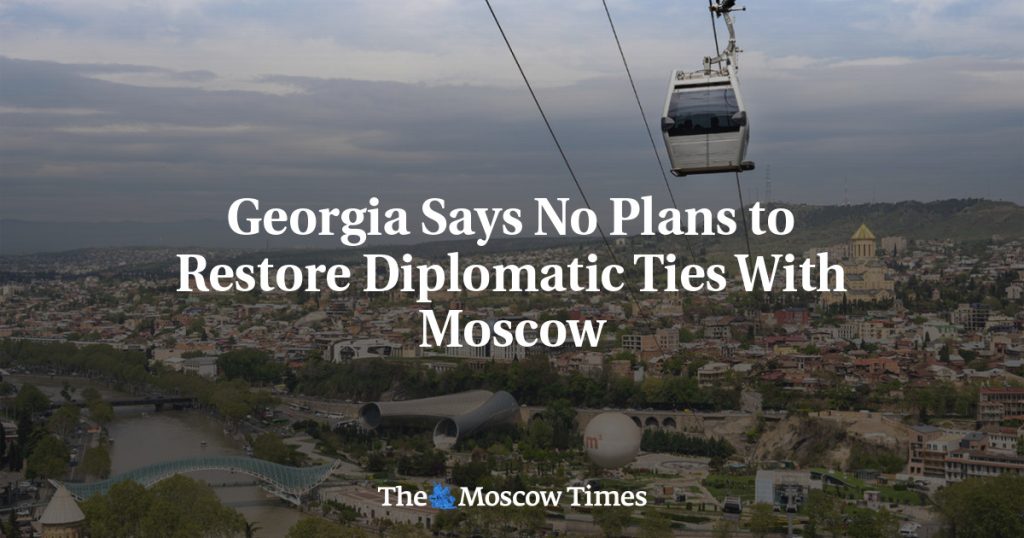Georgia’s Prime Minister, Irakli Kobakhidze, stated that the country has no intention of restoring diplomatic relations with Russia due to Moscow’s continued presence in Georgia’s breakaway regions of Abkhazia and South Ossetia. Kobakhidze emphasized that while Georgia pursues a pragmatic policy towards Russia, there are no plans to re-establish diplomatic ties as long as 20% of the country’s territory remains occupied by Russia. Since the five-day war in 2008, Russia has provided military, diplomatic, and economic support to Abkhazia and South Ossetia, resulting in the breakdown of formal diplomatic relations between the two countries.
Following a parliamentary election in Georgia, the ruling Georgian Dream party claimed victory with nearly 54% of the vote, a result that has been disputed by opposition parties. The election was seen as a crucial moment in determining whether Georgia would move towards joining the European Union. However, observers reported significant violations during the election process, raising concerns about the country’s democratic freedoms. This comes after mass demonstrations earlier in the year, where opposition groups accused the government of attempting to restrict democratic rights and pivot away from a pro-Western stance towards closer ties with Russia.
Georgian Dream, which has been in power since 2012, initially followed a liberal and pro-Western policy agenda. However, in recent years, the party has shifted its approach, promoting conspiracy theories about a “global war party” controlling Western institutions and supposedly pushing Georgia towards conflict with Russia and Ukraine. This fearmongering strategy has resonated with some voters, who have been led to believe that only Georgian Dream can protect the country from an imminent threat of war. The party’s tactics have been criticized for their resemblance to Kremlin-style measures to suppress dissent and stifle civil society.
One of the controversial moves by Georgian Dream was the enactment of a “foreign influence” law targeting civil society, which led to widespread protests and condemnation from both the European Union and the United States. The law was seen as an attempt to silence dissenting voices and was deemed incompatible with the values of democracy. As a result, Brussels froze Georgia’s EU accession process, and Washington imposed sanctions on numerous Georgian officials. This further strained relations with Western allies and raised concerns about Georgia’s commitment to democratic principles and human rights.
Georgia’s complex relationship with Russia has been a focal point of domestic and international tensions, particularly in the aftermath of the 2008 war. The unresolved conflict in Abkhazia and South Ossetia continues to be a major barrier to normalizing relations between the two countries. Georgia’s refusal to restore diplomatic ties with Moscow underscores the deep-seated distrust and animosity towards Russia, stemming from historical grievances and ongoing territorial disputes. Despite efforts to maintain a pragmatic approach to Russia, Georgia remains steadfast in its support for territorial integrity and sovereignty, rejecting any compromise that would undermine its national security and independence.
In conclusion, Georgia’s stance on diplomatic relations with Russia reflects the complex geopolitical dynamics and internal challenges facing the country. The recent election and subsequent disputes highlight the deep divisions within Georgian society over the direction of the country’s foreign policy and democratic governance. The ruling party’s shift towards authoritarian tactics and anti-Western rhetoric has raised concerns among Western allies and civil society groups. Moving forward, Georgia will need to navigate these internal and external pressures while upholding its commitments to democracy, human rights, and territorial integrity. The ongoing conflict with Russia remains a central issue that shapes Georgia’s foreign policy and national identity, underscoring the enduring impact of historical grievances on contemporary politics in the South Caucasus region.














